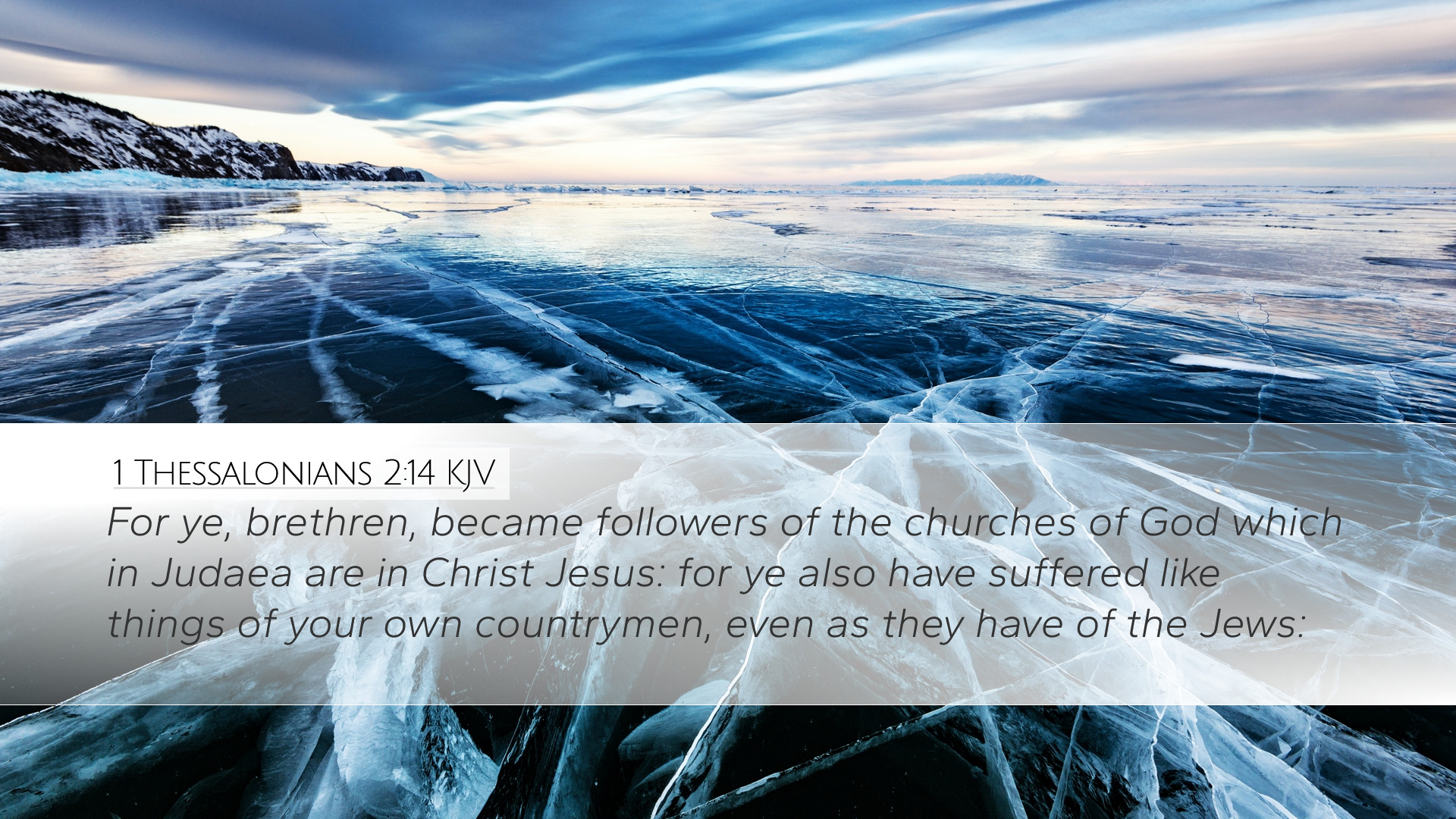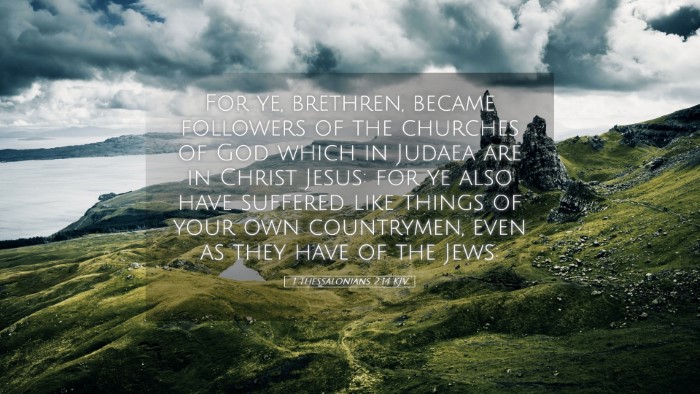Commentary on 1 Thessalonians 2:14
Verse: "For ye, brethren, became followers of the churches of God which in Judaea are in Christ Jesus: for ye also have suffered like things of your own countrymen, even as they have of the Jews."
Introduction
This passage from 1 Thessalonians highlights the profound connection between the Thessalonian believers and the early church in Judea. It points to the shared experiences of suffering and faith in Christ, encouraging the Thessalonians amidst their trials. In examining this verse through the insights of public domain commentaries, we gain a deeper understanding of Paul's intent and the implications for both the early Christians and contemporary believers.
Contextual Analysis
To fully grasp Paul's message, it is essential to understand the historical and cultural context of the Thessalonian church. Matthew Henry emphasizes the early church's persecution, noting that the Thessalonians were new converts enduring hardships akin to their brethren in Judea. This suffering served not only as a trial of faith but also as a means of identification with Christ's own sufferings.
Connection with the Churches of Judea
Paul refers to the churches in Judea as a reference point for the Thessalonian believers. Albert Barnes notes that the Thessalonian church mirrored the characteristics of these earlier assemblies by adopting their faith and experiencing similar challenges. The mention of "followers" indicates a path of discipleship and unity within the body of Christ. Both groups exemplify perseverance and devotion despite external pressures.
Shared Suffering
Suffering for the sake of Christ unites believers across geographic and cultural lines. Adam Clarke points out that the Thessalonians faced persecution from their fellow countrymen, paralleling the experiences of Judean Christians who suffered from the Jews. This connection provides comfort as they recognize that their plight is not isolated but part of a larger narrative of faith and endurance shared by the church.
Encouragement Amidst Trials
This verse serves as an encouragement, reminding the Thessalonians that their struggles were not in vain. Matthew Henry observes that such suffering should lead to growth and maturity in faith. By participating in the sufferings of Christ, they are participating in a crucial aspect of discipleship that leads to eventual glorification.
Faith and Persistence
Both Henry and Clarke highlight the importance of maintaining faith during adversity. The trials faced by the Thessalonians can solidify their commitment to Christ and enhance their witness to others. Their perseverance in the face of persecution might foster a more profound witness to their surrounding culture, showcasing the transformative power of the Gospel.
Theological Implications
This verse presents significant theological insights regarding the nature of the church, suffering, and Christian identity. The passage asserts that suffering is a shared reality for all believers—a topic repeatedly emphasized in apostolic teaching. It should not lead to despair but rather act as a confirmation of genuine faith.
Ecclesiology
The connection between the Thessalonian church and the churches in Judea points to the universal nature of the church. Barnes asserts that the New Testament presents a body of believers who are interconnected. This communal aspect highlights that individual struggles contribute to the collective body, nurturing unity within the Christian community.
Conclusion
In 1 Thessalonians 2:14, Paul draws a powerful analogy between the experiences of the Thessalonian church and the churches in Judea, rooted in shared faith and suffering. For pastors, students, and scholars alike, this verse offers rich insights into the nature of Christian discipleship and the importance of encouragement in trials. Aligning with early church struggles, today's believers are reminded that their ordeals are part of a larger narrative of faith, and they are not alone in their journey.
Reflection Points
- How do we understand suffering in our current context as believers?
- What communal responsibilities do we hold toward brothers and sisters facing persecution?
- In what ways can we encourage one another to remain steadfast in faith amidst trials?
- How do the experiences of early Christians inform our understanding of the contemporary church?


